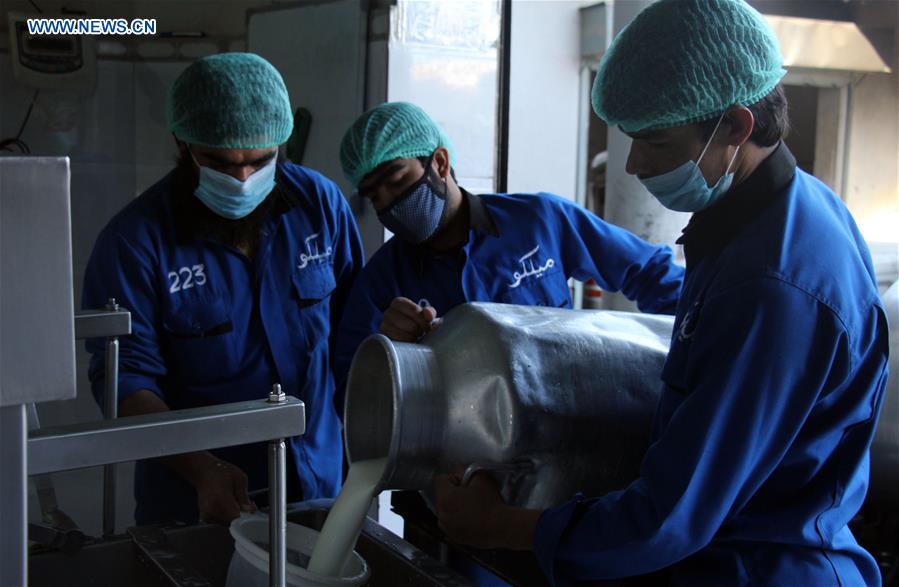 ?
?Afghans work at a milk factory in Kandahar city, the capital of Kandahar province, Afghanistan, Nov. 20, 2018. People in Kandahar, one of Afghanistan's southern provinces, are making great efforts to seek development though the province is still under threats from insurgents. (Xinhua/Sanaullah Seiam)
KANDAHAR, Afghanistan, Nov. 27 (Xinhua) -- People in Kandahar, one of Afghanistan's southern provinces, are making great efforts to seek development though the province is still under threats from insurgents.
Two high quality milk processing and packing plants have recently been built in the province, processing over 65,000 liters of milk, along with other milk-based products, on a daily basis.
The biggest plant, Milko Company, took 235,000 U.S. dollars to build and boasts 200 direct workers. The plant can process over 50,000 liters of milk, while the smaller one can process over 15,000 liters of milk per day.
"We have more than 200 employees, with 30 women being directly employed and at least 1,000 indirect workers are the beneficiaries of the Milko Company, built in 2007," Meya Sahib, the owner of the plant told Xinhua recently.
With sub- industries in the neighboring Helmand, Zabul and some other parts of the Kandahar province netting a monthly revenue of 22.5 million afghanis (295,000 U.S. dollars), the Milko Company supplies other milk-based products such as cheese, milk-cream, butter and yogurt.
Meanwhile, Mohammadullah Noori, the promotion manager of the provincial agriculture department, said both milk processing units were of a high standard and besides this, thousands of liters of milk of various types were being processed, packed and sold through other small functional enterprises in parts of the provincial capital Kandahar city and adjoining areas every day.
The official said more milk processing factories were needed in the province.
Despite some social and traditional restrictions in girls' education in the province, up to 800 girls, far more compared to only 200 to 400 girls of previous years, have graduated from 12 grades this year.
With nearly 100 schools currently remaining closed, official figures show that 377 schools, with 362,000 students including 79,000 girls, are now operational in the province.
The number of girls leaving school before graduation has been considerably reduced, since the figure was very high, with up to 60 percent of female students prematurely leaving education in the past.
In the southern provinces of the country, growing poppies in remote areas and many districts facilitates access to the use and finally addiction to drugs.
However, a lot of addicted women have enrolled in a newly established addiction recovery center for treatment. Women are being provided with short-term professional training, in addition to their treatment.
"Many women are willingly coming and registering their names with the women's drug treatment center," said Nasima, chairperson of the center.











